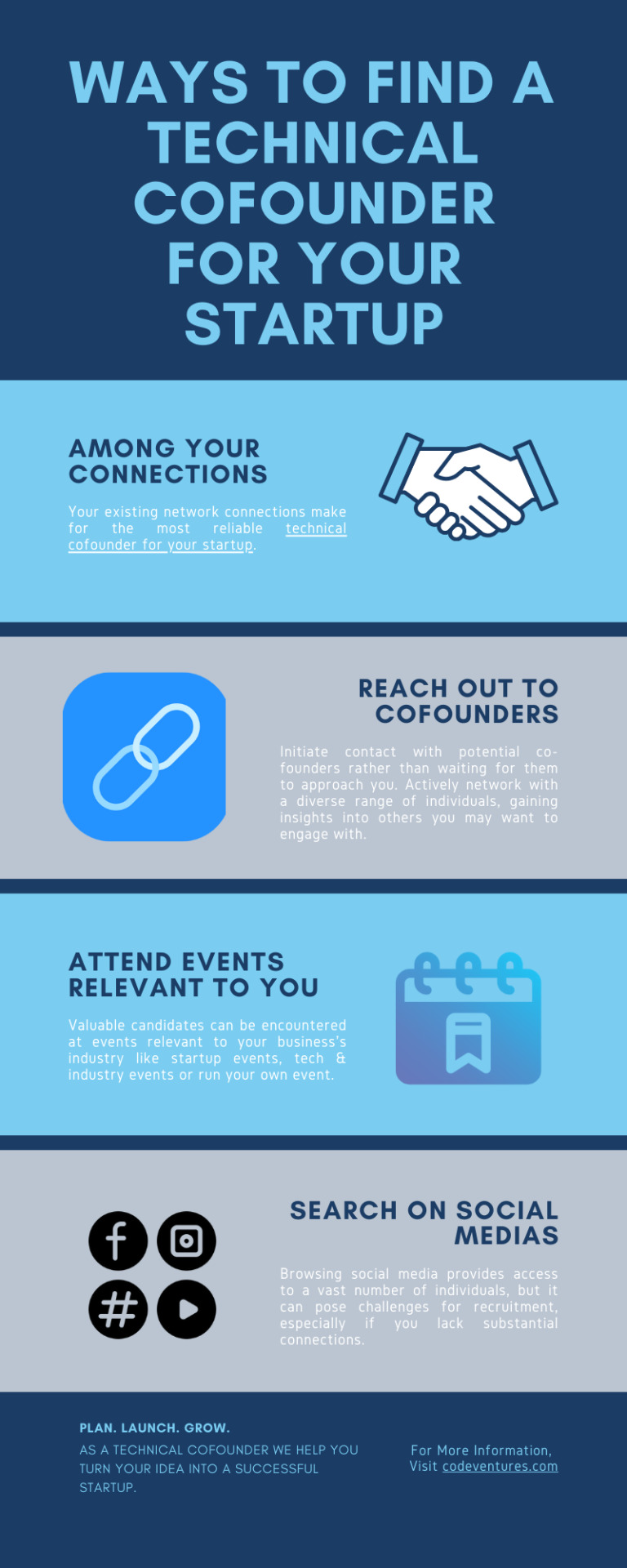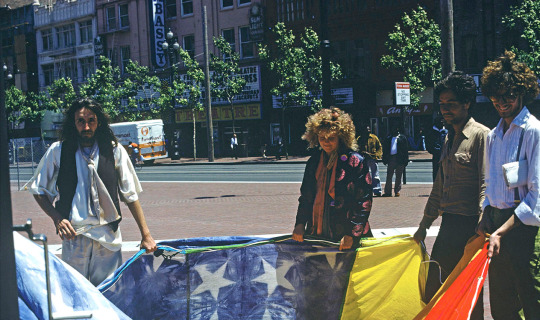#technical cofounder
Text

Finding a technical cofounder for your startup can be a challenging but crucial task, especially if your business is technology-driven or relies heavily on technical expertise. Here are the different ways to find a technical co-founder for your startup business.
#startup#startup business#business ideas#ideas into startup#technical cofounder#startup technical cofounder
1 note
·
View note
Text
I got the job I've been fuckin grindin for for like 3 weeks
7 notes
·
View notes
Text

#antoni you are so right#paypal#zuck posting#finn's flailings#max levchin and peter thiel and their dates#having Six cofounders of fieldlink/confinity#polyam#technically I'm referring to fieldlink/confinity
2 notes
·
View notes
Text
Lol imaging in tumblr existed in the fnaf universe wouldn’t that be funny
——————————————————————————
🧠 williamaftonsfrontallobe-deactivated11092023
He looked so silly in this pic I had to make an edit 🥰🥰🥰

——————————————————————————
😳🔁 hearmeout
ayo why he kinda… 😳😳😳
——————————————————————————
👻🔁 spookyvibesyearround
Wait is that the fucking Fazbear Slasher?
——————————————————————————
☹️🔁 sadgalwrites
PEOPLE ARE MAKING FLOWER CROWN EDITS OF WILLIAM AFTON?!?!?! WHAT IS WRONG WIYH YOU?!?!?!!?
——————————————————————————
🐻🔁 fazbearfanatic
It technically wasn’t proven that he did it because bodies were never found and there was no solid proof that he was the one wearing the mascot suit seen by eye witnesses
——————————————————————————
🏳️⚧️🔁t4tgaysex
He killed 5 children in 1987
——————————————————————————
🥵🔁 williamaftonsballsack
He didn’t even do it ya know he was set up
I can’t believe you people still think he did it when there’s more proof that the cofounder Henry Emily did it than poor Willy 🥺
——————————————————————————
🏳️⚧️🔁 t4tgaysex
You will die in seven days
——————————————————————————
💝🔁 superwholockforlife
he was also the prime suspect in the unsolved murder of Charlotte Emily years before the Fazbear disappearances
how are there still dumbasses saying he’s innocent in 2023 did that stupid fazbear frights thing bring you freaks back from 1993 or something
——————————————————————————
😨🔁 poordisturbedonlooker
wjat the fuck did I just read
#idk it’s 3 am#the links are markiplier let’s plays and the fnaf wiki page btw nothing weird#fnaf#five nights at Freddy’s
594 notes
·
View notes
Text
i'm not sure what the technicalities were before kayleigh day's death, but the idea that she might have trusted tetsuji, the man she cofounded exy with, her legacy, with her son, and he betrayed that trust in the most horrendous of ways, the idea that they might've been been friends at some point. it's just so devastating
62 notes
·
View notes
Note
Hey my dear mutual! Another super stupid and weird request coming, so, please, feel totally free to ignore completely if you want, really. So, let's say instead of a criminal organization, the Akatsuki are actually a lab team. Which would be their roles, their work focus or their research topics? How would they behave at work with each other or, I don't know, whatever you can think of. Inspired by your agar plates post, by the way, hahahaha
Hello Sasuke, my dear. Don't call your asks weird, I love how creative they are! If anyone wants to write a fic about this please TAG me!
Big thanks to @the-real-sasuke-uchiha for requesting!
The Akatsuki in a modern research lab AU
Akatsuki Labs, Inc. No one knows what they're actually researching, and how they get their funding, however everyone hires them, they're incredibly popular with institutions and businesses alike...
Deidara is a lab rookie who is still at the beginning of his study. He went to a scientific high school and an absolute ace at chemistry. Besides studying chemistry, his other major is pyrotechnical engineering. He blows shit up on the regular and even adds copper sulphate to fires when he is the one supposed to put them out. He frequently steals minerals from the lab to use them for his pottery projects. And yes, he knows how to make meth.
Hidan is on his way to become a neurologist. He is fascinated by the way the nervous system works (especially while processing pain) and has the ego of a neurosurgeon twice his age. However he is regularly asked for a second opinion because he knows his shit. He's pretty popular with the ladies due to his confidence, however many of them are freaked out when they find out what a huge masochist he is.
I've never seen Itachi as a huge stem guy, but I've actually had a discussion about this with my dear moots @pet-plasma-bubble and @suki91 and came to the conclusion that he's either a plant biologist or studies medicine because he's one of these kids with a chronic and/or underdiagnosed illness going into medicine to make a change. Plant biologist!Itachi regularly talks to his plants when no one is looking and he gives them names as well. He doesn't really care much for the actual lab work and prefers to take care of the plants in the different lab greenhouses. Med student!Itachi is one of these anatomy girlies who draw their stuff in fancy colors and actually enjoy studying human anatomy.
Kakuzu is a senior scientist/professor who initially studied pharmacology/pharmacy to save many lives and prolong the lives of millions, but eventually got disillusioned and sold his soul to the pharma industry. He should technically be retired now, but he joined the Akatsuki labs inc to make some money on the side.
Kisame started out as a marine biologist specializing in shark research, however, seeing these beautiful, innocent creatures get bastardized by Hollywood and pollution made him apply to Akatsuki labs inc to help find solutions to the current crises caused by humanity. During his free time, he volunteers in a dolphin rehabilitation center.
Konan is the cofounder of Akatsuki labs inc, everyone respects her and even looks up to her. Once a brilliant scientist in the field of engineering, she got tired of how male dominated it was and how her male colleagues kept getting the credit for her ideas. She frequently holds lab courses for young girls interested going into the scientific field.
Nagato is the Akatsuki labs founder, and rarely seen in the lab. He has made himself a name in the field of robotics by inventing the Shurado robotics system which helps millions of automated machines run to this day. Rarely seen in the lab, he communicated with his employees via his Pain Alias Email. though to be fair, Konan writes most of these emails for him; she's the only one regularly talking to him face-to-face.
Orochimaru is a geneticist and biochemist, his focus being finding ways to avoid cellular decay, as well as the human genome and anti aging research. His parents are academics as well and he lived up to their expectations to the fullest. He has his own skincare formula which keeps him looking snatched at all times. Given the rumors about several scientific ethical code violations, everyone is kinda scared of him except for his personal lab tech, Kabuto.
Sasori is a renowed mortician who's also very interested in histology. His preparation techniques are unmatched and he even invented new preparation- and histological staining methods, which are called "Red Sand" and "Red Technique", respectively. He often gets into fights with Kakuzu about his microtome collection being unnecessarily expensive.
Tobi is the Akatsuki labs CEO cosplaying as a clueless intern that always steals from the candy bowl in the waiting room. In reality, he has a PHD in physics, his thesis being about rifts in space time and interdimensional interactions, however all of his papers are published under an alias. He has a soft spot for Deidara and refuses to fire him despite the latter's frequent "accidents".
Zetsu is a biological anthropologist fascinated by human evolution and human behavior. Some think even his colleagues are subjects of his studies. Some people say he's two-faced, but he is very chatty and inquisitive most of the time. He volunteered to have Itachi's venus fly traps in his office and can sometimes be seen feeding them dead flies or mosquitoes.
#naruto#naruto shippuden#naruto headcanons#naruto scenarios#naruto au#akatsuki#akatsuki headcanons#naruto modern au#deidara headcanons#hidan headcanons#itachi headcanons#kakuzu headcanons#kisame headcanons#konan headcanons#nagato headcanons#orochimaru headcanons#sasori headcanons#obito headcanons#tobi headcanons#zetsu headcanons#naruto fanfiction#naruto imagines
52 notes
·
View notes
Text
A battle for control is taking place inside iPhones across Europe. While Apple introduced new rules that ostensibly loosen its control over the App Store, local developers are seething at the new system, which they say entrenches the power Apple already wields over their businesses. They’re now breaking into a rare open revolt, mounting pressure on lawmakers to step in.
So far, they have accused Apple’s new business terms of being “abusive,” “extortion,” and “ludicrously punitive.”
“Apple holds app providers ransom like the Mafia,” claims Matthias Pfau, CEO and cofounder of Tuta, an encrypted email provider. The tech giant treats iPhones as its territory, Pfau complains, tightly controlling developers’ access before taking a chunk of their profits. “Anyone wanting to provide an iOS app must pay a ransom to Apple; there’s no way around it.”
For years, Apple has rejected Tuta app updates if they include links to the company’s website, he says. Like all iOS apps, Tuta has also been unable to take in-app payments directly from its customers. Apple acts as an intermediary and charges a fee. Pfau was hoping the App Store reforms mandated by the EU’s Digital Markets Act (DMA) would make companies like his less tightly bound to Apple. Instead, he is left disappointed by the new terms on offer. “What they came up with is the best proof that they are massively abusing their market dominance,” he says. “Apple is basically behaving like a dictator.”
Apple was designated a “gatekeeper” under the DMA after the EU decided that the App Store acts as an important gateway between businesses and consumers. The company, along with other tech giants, has until March 7 to make a raft of changes. To avoid fines that can reach up to 20 percent of global revenue, the smartphone maker announced its new rules in late January.
The rules technically make it possible for users of its hardware to download apps from alternative app stores and also for developers to use their own payment systems—bypassing Apple’s commission.
But in order to access these new features, developers have to sign up to new business terms. Those terms include restrictions that disincentivize any developers moving away from the status quo, according to Pfau. If his company Tuta were to take advantage of the new system, iPhones would issue warnings—known by critics as “scare screens”—informing users about security risks linked to using payment systems that are not managed by Apple. From Tuta’s testing of how popups affect in-app upgrades, he estimates these warnings would dissuade 50 percent of users from proceeding with their purchase.
Additionally, although the new terms allow Pfau to make Tuta available in an alternative app store, they would also expose the company to a “core technology fee” every time it was downloaded or updated more than 1 million times in a one-year period. Pfau accepts that Tuta, which he claims has over 100,000 paying subscribers, might not have to pay this fee in the first year. “But we are growing,” he insists. “So we would definitely have to pay it within the next couple of years.”
For Sweden’s Spotify, the download fee is more of an immediate problem if the company were to accept Apple’s new business terms. “With our EU Apple install base in the 100 million range, this new tax on downloads and updates could skyrocket our customer acquisition costs, potentially increasing them tenfold,” Spotify CEO Daniel Ek said on X soon after Apple released its proposal. “While Apple has behaved badly for years, what they did yesterday represents a new low, even for them.”
For that reason, Spotify, like other apps, believes it has no choice but to stick with its current agreement, Ek elaborated in a call with investors last week. That means still paying commission to Apple and listing their iOS app exclusively on Apple’s App Store. “No sane developer wants to pick any of the new terms,” Ek said. Sticking with the current system doesn’t make the situation worse for companies like Spotify, he added, but it does mean they are missing out on revenues from users buying products such as audiobooks, a new focus for the platform, through the company’s app. (Spotify does not sell audiobooks in their iOS app in order to avoid Apple’s commission fee.) “So some of these more innovative things that we would like to do, we’re currently restricted in doing on the iOS ecosystem.”
Apple maintains its changes are compliant with the DMA while also being necessary to protect its EU users’ devices from the security risks that, it says, are introduced by the new law. “Apple’s approach to the Digital Markets Act was guided by two simple goals: complying with the law and reducing the inevitable, increased risks the DMA creates for our EU users,” says Apple spokesperson Julien Trosdorf. “That meant creating safeguards to protect EU users to the greatest extent possible and to respond to new threats, including new vectors for malware and viruses, opportunities for scams and fraud, and challenges to ensuring apps are functional on Apple’s platforms.”
App developers don’t have much power on their own to make Apple change course. But they hope their criticism will force the European Commission, a branch of the EU’s government, to take action. After the March 7 deadline, officials are expected to assess both Apple’s proposals and the market’s reaction. “Now [the European Commission] must reject Apple’s proposal and even consider imposing a fine if no further improvements are made,” says Sebastiano Toffaletti, secretary general of the European DIGITAL SME Alliance, an industry group.
Andy Yen, CEO of Swiss email and cloud service Proton, is less diplomatic. “If I was the European Commission, I would probably look at this as an insult,” he says of Apple’s proposed business terms. “It’s a slap in the face.”
29 notes
·
View notes
Text
Taking Risk
I just spent a week talking with some exceptional students from three of the UK's top universities; Cambridge, Oxford and Imperial College. Along with UCL, these British universities represent 4 of the top 10 universities in the world. The US - a country with 5x more people and 8x higher GDP - has the same number of universities in the global top 10.
On these visits, I was struck by the world-class quality of technical talent, especially in AI and biosciences. But I was also struck by something else. After their studies, most of these smart young people wanted to go and work at companies like McKinsey, Goldman Sachs or Google.
I now live in San Francisco and invest in early-stage startups at Y Combinator, and it's striking how undergraduates at top US universities start companies at more than 5x the rate of their British-educated peers. Oxford is ranked 50th in the world, while Cambridge is 61st. Imperial just makes the list at #100. I have been thinking a lot about why this is. The UK certainly doesn't lack the talent or education, and I don't think it's any longer about access to capital.
People like to talk about the role of government incentives, but San Francisco politicians certainly haven't done much to help the startup ecosystem over the last few years, while the UK government has passed a raft of supportive measures.
Instead, I think it's something more deep-rooted - in the UK, the ideas of taking risk and of brazen, commercial ambition are seen as negatives. The American dream is the belief that anyone can be successful if they are smart enough and work hard enough. Whether or not it is the reality for most Americans, Silicon Valley thrives on this optimism.
The US has a positive-sum mindset that business growth will create more wealth and prosperity and that most people overall will benefit as a result. The approach to business in the UK and Europe feels zero-sum. Our instinct is to regulate and tax the technologies that are being pioneered in California, in the misguided belief that it will give us some kind of competitive advantage.
Young people who consider starting businesses are discouraged and the vast majority of our smart, technical graduates take "safe" jobs at prestigious employers. I am trying to figure out why that is.
___
Growing up, every successful adult in my life seemed to be a banker, a lawyer or perhaps a civil engineer, like my father. I didn't know a single person who programmed computers as a job. I taught myself to code entirely from books and the internet in the late 1990s. The pinnacle of my parents' ambition for me was to go to Oxford and study law.
And so I did. While at university, the high-status thing was to work for a prestigious law firm, an investment bank or a management consultancy, and then perhaps move to Private Equity after 3 or 4 years. But while other students were getting summer internships, I launched a startup with two friends. It was an online student marketplace - a bit like eBay - for students. We tried to raise money in the UK in 2006, but found it impossible. One of my cofounders, Kulveer, had a full-time job at Deutsche Bank in London which he left to focus on the startup. His friends were incredulous - they were worried he'd become homeless. My two cofounders eventually got sick of trying to raise money in the UK and moved out to San Francisco. I was too risk-averse to join them - I quit the startup to finish my law degree and then became a management consultant - it seemed like the thing that smart, ambitious students should do. The idea that I could launch a startup instead of getting a "real" job seemed totally implausible.
But in 2011, I turned down a job at McKinsey to start a company, a payments business called GoCardless, with two more friends from university. We managed to get an offer of investment (in the US) just days before my start date at McKinsey, which finally gave me the confidence to choose the startup over a prestigious job offer. My parents were very worried and a friend of my father, who was an investment banker at the time, took me to one side to warn me that this would be the worst decision I ever made. Thirteen years later, GoCardless is worth $2.3bn.
I had a similar experience in 2016, when I was starting Monzo, I had to go through regulatory interviews before I was allowed to work as the CEO of a bank. We hired lawyers and consultants to run mock interviews - and they told me plainly that I was wasting my time. It was inconceivable that the Bank of England would authorise me, a 31 year old who'd never even worked in a bank, to act as the CEO of the UK's newest bank. (It turned out they did.) So much of the UK felt like it was pushing against me as an aspiring entrepreneur. It was like an immune system fighting against a foreign body. The reception I got in the US was dramatically different - people were overwhelmingly encouraging, supportive and helpful. For the benefit of readers who aren't from the UK, I hope it's fair to say that Monzo is now quite successful as well.
___
I don't think I was any smarter or harder working than many of the recent law graduates around me at Oxford. But I probably had an unusual attitude to risk. When we started GoCardless, we were 25 years old, had good degrees, no kids and supportive families. When fundraising was going poorly, we discussed using my parents' garage as an office. McKinsey had told me to contact them if I ever wanted a job in future. I wonder if the offer still stands.
Of course, I benefitted from immense privilege. I had a supportive family whose garage I could have used as an office. I had a good, state-funded education. I lived in a safe, democratic country with free healthcare. And I had a job offer if things didn't work out. And so the downside of the risks we were taking just didn't seem that great.
But there's a pessimism in the UK that often makes people believe they're destined to fail before they start. That it's wrong to even think about being different. Our smartest, most technical young people aspire to work for big companies with prestigious brands, rather than take a risk and start something of their own.
And I still believe the downside risk is small, especially for privileged, smart young people with a great education, a supportive family, and before they accumulate responsibilities like childcare or a mortgage. If you spend a year or two running a startup and it fails, it's not a big deal - the job at Google or McKinsey is still there at the end of it anyway. The potential upside is that you create a product that millions of people use and earn enough money that you never have to work again if you don't want to.
This view is obviously elitist - I'm aware it's not attainable for everyone. But, as a country, we should absolutely want our smartest and hardest working people building very successful companies - these companies are the engines of economic growth. They will employ thousands of people and generate billions in tax revenues. The prosperity that they create will make the entire country wealthier. We need to make our pie bigger, not fight over the economic leftovers of the US. Imagine how different the UK would feel if Google, Microsoft and Facebook were all founded here.
___
When I was talking with many of these smart students this week, many asked me how these American founders get away with all their wild claims. They seem to have limitless ambition and make outlandish claims about their goals - how can they be so sure it will pan out like that? There's always so much uncertainty, especially in scientific research. Aren't they all just bullshitters? Founders in the UK often tell me "I just want to be more realistic," and they pitch their business describing the median expected outcome, which for most startups is failure.
The difference is simple - startup founders in the US imagine the range of possible scenarios and pitch the top one percent outcome. When we were starting Monzo, I said we wanted to build a bank for a billion people around the world. That's a bold ambition, and one it's perhaps unlikely Monzo will meet. Even if we miss that goal, we've still succeeded in building a profitable bank from scratch that has almost 10 million customers.
And it turns out that this approach matches exactly what venture capitalists are looking for. It is an industry based on outlier returns, especially at the earliest stages. Perhaps 70% of investments will fail completely, and another 29% might make a modest return - 1x to 3x the capital invested. But 1% of investments will be worth 1000x what was initially paid. Those 1% of successes easily pay for all the other failures.
On the contrary, many UK investors take an extremely risk-averse view to new business - I lost count of the times that a British investor would ask for me a 3 year cash-flow forecast, and expect the company to break even within that time. UK investors spend too much time trying to mitigate downside risk with all sorts of protective provisions. US venture capital investors are more likely to ask "if this is wildly successful, how big could it be?". The downside of early-stage investing is that you lose 1x your money - it's genuinely not worth worrying much about. The upside is that you make 1000x. This is where you should focus your attention.
___
A thriving tech ecosystem is a virtuous cycle - there's a flywheel effect that takes several revolutions to get up-to-speed. Early pioneers start companies, raise a little money and employ some people. The most successful of these might get acquired or even IPO. The founders get rich and become venture capital investors. The early employees start their own companies or become angel investors. Later employees learn how to scale up these businesses and use their expertise to become the executives of the next wave of successful growth-stage startups.
Skype was a great early example of this - Niklas Zenstrom, the co-founder, launched the VC Atomico. Early employees of Skype started Transferwise or became seed investors at funds like Passion Capital, which invested in both GoCardless and Monzo. Alumni of those two companies have created more than 30 startups between them. Matt Robinson, my cofounder at GoCardless, was one of the UK's most prolific angel investors, before recently becoming a Partner at Accel, one of the top VCs in the world. Relative to 15 or 20 years ago, the UK tech ecosystem is flourishing - our flywheel is starting to accelerate. Silicon Valley has just had a 50 year head start.
There is no longer a shortage of capital for great founders in the UK (although most of the capital still comes from overseas investors). I just believe that people with the highest potential aren't choosing to launch companies, and I want that to change.
___
I don’t think the world is prepared for the tidal wave of technological change that’s about to hit over the next handful of years. Primarily because of the advances in AI, companies are being started this year that are going to transform entire industries over the next decade.
It doesn't seem hyperbolic to say that we should expect to see very significant breakthroughs in quantum computers, nuclear fusion, self-driving vehicles, space exploration and drug discovery in the next 10 or 20 years. I think we are about to enter the biggest period of transformation humanity has ever seen.
Instead of taking safe, well-paying jobs at Goldman Sachs or McKinsey, our young people should take the lead as the world is being rebuilt around us.
8 notes
·
View notes
Text
yo @ftm-megamind homie since youse the founder of javid thursday an all can i get your blessing for me to be the founder of sprace saturday per favore <3333
hey @itshatsig also if you wanna be cofounders because you technically came up w the idea im cool with that if you want xx
20 notes
·
View notes
Text
F1 related news, rumours and interesting bits from the past day
Checo Perez owns a team in electric racing boat series UIM E1 (the cofounder of E1 was a team principal and owner of gp2 team Checo raced for, so he helped him a bit so he could set up a team Mexico in the series)
Alpha Tauri (or the cashapp team) want to move from the team that signs juniors to prepare before going to RBR, to the team with more experienced drivers to be more competitive team according to Bayer (there has been a slight change in the team and team politics after Mateschitz passing)
Simone Resta who was "on lease" in Haas because of Ferrari's budget cap might head over to Alpha Tauri (because of the links to Laurent Mekies) and since it was on lease agreement previously, he doesn't need to undergo the usual gardening leave
Carlos Sainz spoke about the no number 1 policy in Ferrari and said other teams should see it as Ferrari's big advantage (part of his quote below)
Ollie Bearman was seen wearing All Time (company cofounded by Charles, with Arthur and Joris) hoodie while playing Playstation games (also there is a new, an hour long interview with him, so I will make sure to listen to it)
Charles confirmed he will be playing a charity footie match in Monaco tonight (although it should only be for one half apparently) at 18:30
It's rumoured Rory Byrne (who is almost 80) is giving out advice to Ferrari for 2024 car design to help with revolution from sf-23
Andrea Stella hinted MCL has another big mid season update ready, because some developments take a few months
Tottenham Stadium F1 Karting opens on February 6th (and tickets go on sale this week)
There's a new article by F1.com about Alonso asking Verstappen about possible Le Mans entry and it's old news, but I just wanna warn everyone interested in reading it about the weight talk inside
Alpine technical director said their operational set up window was too narrow in 2023 so they're changing the car completely for 2024


#side note. idk what i wanted to highlight here so just ignore that#f1#e#gossip night#2024#winter break
7 notes
·
View notes
Text
Rainbow Flag Timeline
Pre-Flag
Pink Triangle


[December 19, 1938, Corbis/Getty Images]
The upside-down pink triangle was used to mark queer "men" (including mlm, gnc men, male sex workers, and trans women) during the Holocaust. The symbol was reclaimed by many, and is still occasionally used today. However, it was not accepted as a general sign for the community, both because of the painful history connected to it, and because it did not include a large chunk of the community.
Lambda

[Gay Activists Alliance parade, June 1970, NYPL]
Although this was not technically a flag, the lambda (triangle-shaped Greek letter on the banner) was quite often used to represent the GAA, gay activists' alliance, and thus became a sort of gay symbol, although this wasn't often used because of the complicated printing process and because of people's personal politics not aligning with the GAA.
Original Flag, 1978
The original rainbow flag was created to represent the community on Gay Freedom Day, what we now consider Pride (June 25, 1978), by the Decorating Committee of The Pride Foundation.

[Gay Freedom Day Committee, June 25, 1978, photograph by Elaine Gay Jarvis, Elaine Gay Jarvis Papers (2018-90), GLBT Historical Society]

This committee was led by Gilbert Baker and Lynn Segerblom (known then as the Fairy Argyle Rainbow), and indeed in recent years the story has been told that they were the original creators, however, Lee Mentley, who was an executive committee member and one of the many volunteers, notes that "Gilbert was there and yes he helped but he was no Betsy Ross."
Gilbert Baker did, however, dedicate a good portion of his life to popularizing his flag, and thus it is understandable how he became an idol.
The stripes represent, from top to bottom, sex, life, healing, sunlight, nature, magic and art, serenity, and spirit.

[Lynn Segerblom with the flag, June 1978, James MacNamara]

[June 25, 1978, Crawford Barton]
A second version, reversed, and based off of the American flag, was also flown.

[June 24, 1978, James McNamara]
Seven Stripes, 1978
After the murder of Harvey Milk, the openly gay governor of San Francisco, demands for the flag that he had worked on skyrocketed. However, the hot pink proved too difficult to handle, and thus this flag was born. [x]

Six Stripes, 1979
In 1979, there was an idea to split the flag in half at a parade, and so the turquoise stripe was cut. This version of the flag is most popular today. [x]

Victory Over AIDS, 1980
In the 1980s, HIV/AIDS was rampaging the country, taking the lives of thousands of people, especially hurting queer men.
This flag was created to commemorate the fallen, and Sergeant Matlovich, who was himself dying of AIDS, brought forth the idea that should a cure ever be found, the black stripes should be removed and burned. [x]

Nine Stripe Flag, 2017
In March 2017, Baker redesigned the flag with "another color to represent diversity in the age of Trump," adding a lilac stripe to the top of the original colour scheme. He passed away at the end of that month at the age of 65.

Philadelphia Flag, 2017
In June 2017, after an outcry over racism within the LGBTQ+ community, Philadelphia's Office of LGBT Affairs, in partnership with designing company Tierney, created the following flag to highlight QPOC voices. [x, x, x]

São Paulo, 2018
During a parade in São Paulo called "Love Fest", one of the cofounders of the parade used the following flag.


[February 12, 2018, Love Fest, Ana Carolina Moreno]
Progress Flag, 2018
Non-binary graphic designer Daniel Quesar (xe/xem/they/them) started a campaign to create a more inclusive pride flag that highlighted QPOC as well as trans people in June 2018.

The traditional stripes take up most of the flag, as to not distract from the history, while the white, pink, blue, brown, and black stripes are in the shape of a triangle, to represent moving forward. [x]
Modern Progress Flag, 2021
In 2021, Intersex activist Valentino Vecchietti of Intersex Equality Rights UK added the yellow and purple intersex flag to the chevron, resulting in the following flag. [x]

Conclusion
This flag will be ever-evolving as our definitions of queerness evolve and as we highlight more and more marginalized parties of our community. There will always be more variations, and that is not a bad thing.
Posted: September 10, 2022
Updated: August 23, 2023
Image descriptions updated
Pink triangle added to the top of the post
40 notes
·
View notes
Note
https://twitter.com/sparker/status/238535988740235264?t=UY5sy0_Et2lwModniInlFw&s=19
this tweet is so funny because he literally only mentioned him, mosko and zuck as fb founders and ignore the rest 😭
The way I burst into actual laughter upon reading this. There is no way in hell Mark considers Sean Parker a co-founder of Facebook. Dustin's said, and I'm paraphrasing here cause I can't remember whether he said this on Threads or Twitter or Quora and I don't want to go looking rn, that he considers Mark and himself cofounders, usually includes Chris in that, and includes Eduardo technically/legally, when pressed. He also mentioned Andrew McCollum which I thought was interesting, though McCollum occupies a lower place in the ranking than Eduardo (again, all this according to Dustin).
Hugely hilarious to me that Sean puts himself so high up in the ranking. From what I remember of what Kirkpatrick said in The Facebook Effect, Parker was out of the company by the end of 2005, and I think sooner than that but I don't want to get a date wrong. His one notable contribution was maybe an introduction to Peter Thiel, but Reid Hoffman was already intrigued about Facebook and they could've gotten to Thiel that way through the PayPal connection.
Thanks for the ask!
#can you tell i don't like sean parker?#he's almost as bad as thiel in my eyes#zuck posting#finn's flailings#asks#anon
1 note
·
View note
Text
Animation Night 158: The Carnival Is Back In Town
Hi everyone, it’s Animation Night! Still happening!!
Tonight I am evidently running quite late. The reasonable reason for this is that I just arrived at my friends’ house in Glasgow and it’s taken a minute to get everything set up. The less reasonable reason is that I spent a lot of time today playing Beat Saber. But anyway!

Today is going to be a combination of old stuff and new stuff! Back in the day, one of the first things I showed on Animation Night were short film collections such as Meikyū Monogatari (1987) [lit. Labyrinth Tales, but known in English as Neo Tokyo and Manie-Manie] and Robot Carnival (also 1987).
The unifying factor in both of these is Katsuhiro Otomo, but let’s not make it all about him! Both are collections of short films by a huge variety of directors. For Otomo himself, it was a ridiculously busy time - as well as directing films in both collections he was hard at work on Akira. For Robot Carnival he created the intro and outro, telling the story of the Robot Carnival itself, a massive crawling machine whose displays have turned into deadly weapons to the apocalypse survivors it runs over below.

And alongside him are a number of familiar names. Kōji Morimoto, future cofounder of Studio 4C, made the ridiculously involved short film Franken’s Gears almost singlehandedly (his family helped with the inbetweening!). Animator Manabu Ōhashi, who tragically passed away last year, made a beautiful abstract short film called Cloud. And Yasuomi Umetsu, whose uniquely chunky hyperrealist design style I’ve written about now and again, directed a troubling short called Presence about a man who creates and destroys a gynoid, probably the most technically spectacular film he’s done. Takashi Nakamura (who I must cover soon, director of e.g. A Tree of Palme) brings a riotous midnight dance of machines in The Tale of Chicken Man and Red Neck. Hiroyuki Kitakubo, future director of Golden Boy and Blood: the Last Vampire, brings a satirical 19th-century fight in Strange Tales of Meiji Culture: Westerner’s Invasion.
All in all it’s one of my favourite short film collections - this is probably like the fourth or fifth time I’ve shown it to people? It’s a great and very varied ride.

And Meikyū Monogatari, this is the work of Madhouse, and as such it has films by Rintarō and Yoshiaki Kawajiri. Rintarō who introduces us by leading a girl into a strange surreal circus to set the stage for the other shorts. Kawajiri directs cyberpunk racing short The Running Man, which is pure imagery and carrying 1000 synthwave music videos on its back - but the original is surprisingly dreamily paced. The biggest highlight is Otomo’s Construction Cancellation Order, in which a salaryman attempts to shut down a massive out-of-control autonomous construction project, butting up against a robot foreman who will do anything to continue the work. If you watched Akira and felt like “damn I think this needs more machinery porn”, Otomo’s got you covered! It’s a great short, unfolding with a sense of wonderful comic inevitability.
Tonight the plan is to revisit both of these short films! But also to check out some recent short films that I thought were neat. For example, we have How And Why Don Jose Dissipated by ‘Animoshe’, a psychedelic short about a bee and a tourist with a truly unique style...
youtube
And Record Highs by Beryl Allee about an athletic competition among frogs amidst... striking circumstances.
youtube
It’s also coming into CalArts season, so if we feel hungry for more, I’ll check out the latest student films. Plus, if you’ve seen anything neat you’d like to watch together, tell me and I’m sure we can find room!!
Sound fun? We’ll be going live shortly over at twitch.tv/canmom and start the films at 10pm UK time! Would love to see you there ^^
5 notes
·
View notes
Text
Ok, so I had an experience today. Those of you who work with teenagers will understand this. Sometimes, parents get involved with business stuff, especially with teenagers, including those who are technically adults. It's a problem with camp staff sometimes. They tend to do this when the teenager is in trouble or when the parent is mad on behalf of the teenager.
So today I had this experience, but with a 19 year old and her boss. Here's what happens. Teen calls me, immediately asks to conference call with someone I've never heard from, who turns out to be the cofounder of the organization. Never a good sign.
The 19 yo tells me that their volunteer did something not really allowed. And I'm like, ok, so how did you come to this. And, I kid you not, the adulty adult goes, well, do you want to tell her? Like a parent would. Except this is an adult and her adultier boss.
I get it, I really do. Teenagers, even adult teenagers, are still learning and their brain is still developing. And they need direction and support and care. So I troubleshoot and we come to an agreement and hang up and I just go, what?
2 notes
·
View notes
Text
GIGA Pro Gym's Team - Does anyone know how to do what they say they want to do?
Presented here are the bios from their website (as of the end of June 2023). I am going to flag what I want you to look for... who here has the technical background to run a multimedia platform. Or are they a marketing person who might have worked in media. I'm going to emphasis these are direct quotes. I'm changing nothing.
I also want to point out that Fox's "early career includes Summer Olympic TV broadcast coverage" is that she was a group VP for Time Warner Cable in the early 2000s. And "start up launches for pro-cycling and senior tennis" still doesn't name what these enterprises are, we've been unable to identify what they might be among non-defunct entities.
*** *** ***
Aimee Boorman: Cofounder and Chief Events Officer
Decorated and globally respected head coach, including 12 years coaching the sport’s all-time greatest, Simone Biles. Collaborative leader with deep technical expertise. Head coach of USA’s Rio Olympic and World Championship gold medal teams. Dutch National team coach at 2020 Tokyo Olympics as well as 2021 World and European Championships; 3X USAG Coach of the Year and 2016 USOPC Coach of the Year. USAG Master of Sport; FIG & USAG judge.
Maura Fox: Cofounder and Chief Executive Officer
Entrepreneur and executive leader with 20+ years in sports, media, technology and entertainment. Long career delivering innovation for cable TV, data tech, and OTT platforms, and successfully launching new products, services, and start ups. Early career includes Summer Olympic TV broadcast coverage, start up launches for pro-cycling and senior tennis, and regional sports net launch of national network brand. Later, led cable TV’s 1st ever IPTV trial and industry leading launches of VOD, SVOD, DVR, and remote DVR services; more recently, led tech transition of linear TV sports channel to all-digital network, product strategy for start up of first-of-its-kind TV data-analytics using census-based data lake-house, and product strategy for $2B IT end user firm.
LaPrise Williams: Cofounder and Chief Sports Engagement Officer
Engagement specialist, business owner, St Vincent and the Grenadines Gymnastics Association (SVGGA) technical director, and women’s sports trailblazer on international stage; Head Coach Baylor University Acrobatics and Tumbling 2011-2014, Co-owner/head coach HUGS gymnastics, Owner/director Dolphin Gymnastics; Coach of USA world gymnastics team member, Ashley Miles; Coach of USA national team members, USA Master of Sport; Texas State Board Member (former), FIG/PAGU committee member 2019, FIG Brevet judge; SVGGA Olympic Committee Board of Trustee member; Coaching consultant Dutch National and Developmental Teams 2020.
Laurie DeFrancesco: Advisor Board Member
GIGA rules chair, 25+ year head coach and gym owner, NCAA and NAWGJ judging official, and co-founder, CT Gymnastics Hall of Fame
Chellsie Memmel: Advisor Board Member
USAG high-performance and technical leader; former World Champion, 2008 Olympian, and internationally rated BREVET judging official
KJ Kindler: Advisor Board Member
OU Women’s Gymnastics Head Coach, 6x NCAA Team Championship titles – including 2023, 3x NCAA Coach of the Year, and Chair of WCGA Rules Committee
Jessica O’Beirne: Advisor Board Member
Creator/ producer of GymCastic podcast; writer, social influencer, and multimedia journalist, on air talent and expert analyst for sport of gymnastics
Lauren LoFrisco
Promotional marketing and sales expert with brand leadership in media and entertainment industries, and prominent management and consulting roles at HBO, TWC, Road Runner, and Comcast
Nicole Perrelle
Trusted advisor for digital execution, innovation strategy, and process optimization, with management and leadership roles including Gartner, Deloitte, and Amazon
Trish Scanlon
Branded entertainment and creative services executive with deep expertise in cable, TV, and lifestyle brands, including networks such as HGTV, Travel, In Demand, and Food Network
Jen Smith
Entrepreneur and strategic advisor, specializing in start up ventures and investor relations; deep experience delivering customer experience optimization, growth, and stakeholder value
Ben Wiles
Legal Counsel, Corporate Matters; deep legal experience and expertise in venture capital, private equity, and emerging growth matters
4 notes
·
View notes